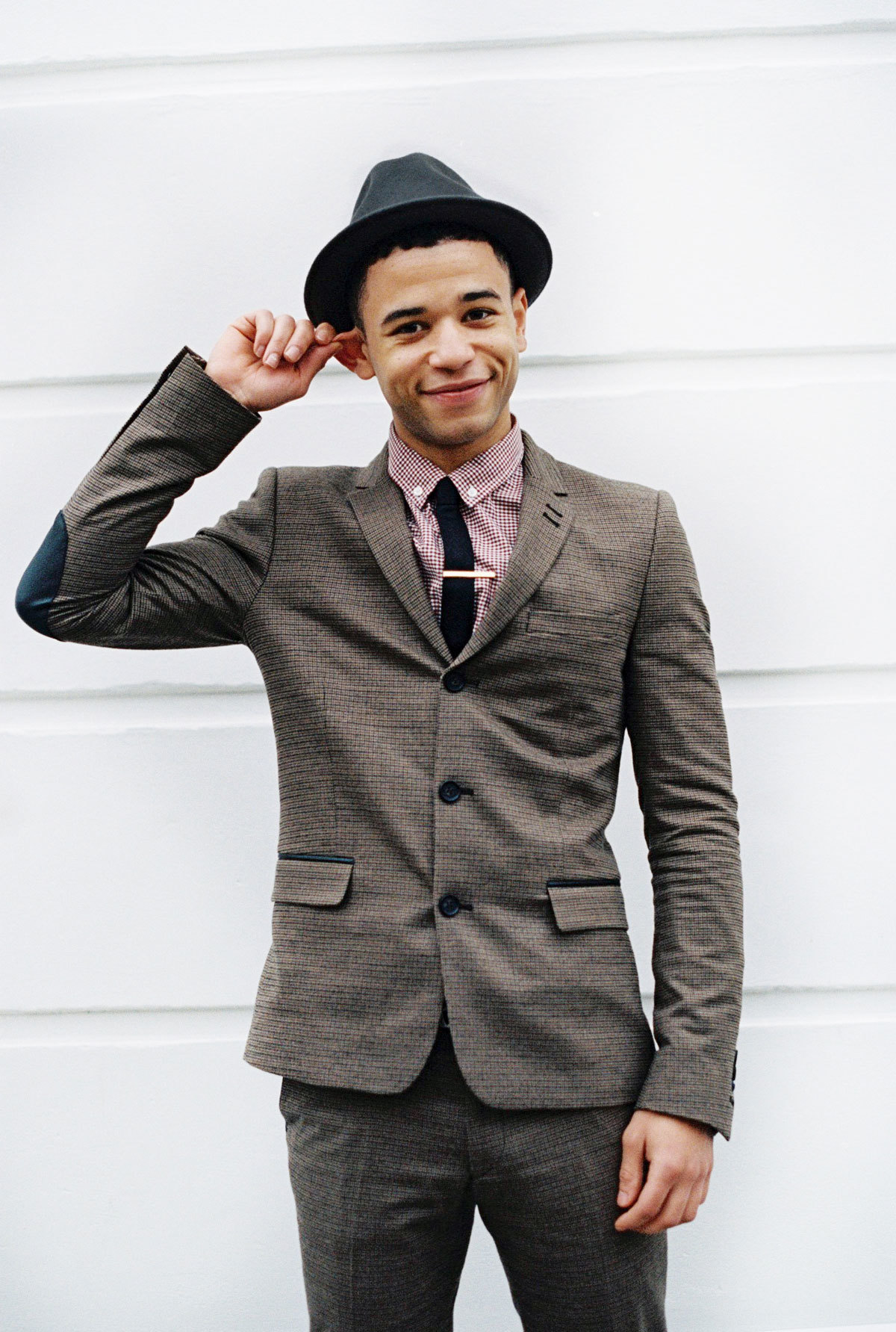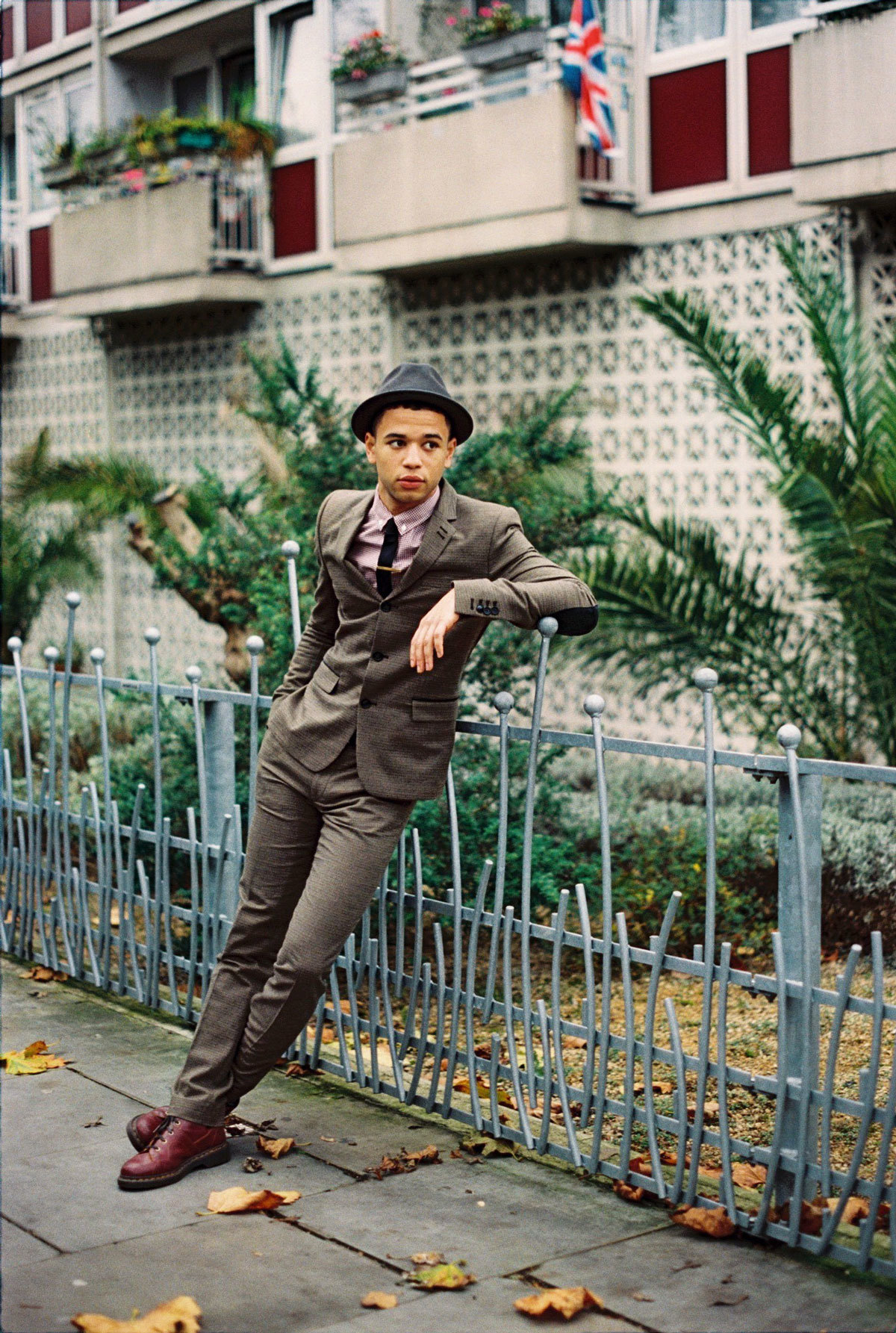Soap fans will recognise Calvin Demba (nickname: Calvin Cookie) from his stint on Hollyoaks, E4 fans, from Peckham-set teen show Youngers, and Tom Hardy fans from musical-murder-thriller London Road. The 21-year-old East Ender’s done alright for himself, having had zero professional training, and only deciding to pursue an acting career four years ago. But it might be his personal work that makes him that much more interesting. “All we seem to get is celebrity heroes making sex tapes that young girls want to replicate, young men want to date,” he says in his spoken word piece for Word on the Curb. “I say fuck that, take me back to the old and golden days when we used to get to the second date before we even thought about the chance to penetrate.” Calvin’s spoken word includes pieces on celebrity culture and the gentrification of Bethnal Green, and he can add director to his CV now, with his new film RueBoy, out next year. We chat to Cookie about Tupac, chicken shops and the New Era Estate.
How did you get into acting?
I attended The Half Moon youth theatre in Limehouse at 17. After a few classes I was given a flyer to apply for a new acting agency in Hoxton. My mum helped me apply and after auditioning I was awarded a place. I guess what drew me into acting was the pleasure I got from pissing about. I enjoyed acting when I did it recreationally so if I could earn a living from it I figured I was onto something. Luckily so far I haven’t been proved wrong.
Do you prefer television or theatre?
I’m not sure as of yet. I enjoy stage as there is a chronological journey the audience experiences with the actor. I feel a buzz when I step on stage as I know there is no edited performance, it’s live and alive and could go wrong at any moment. Whatever the actor does on the night determines what the audience feels. TV and film is very rarely shot chronologically but once completed you can watch your work back and potentially improve on choices and deliverance of lines. In TV and film your work lives on – some of my favourite actors are retired or no longer alive. Your work can outlive you in film, it can be timeless. That prospect excites me. For now I’m enjoying my work and growing as a creative.
You have had no formal training, is that a hindrance or a help?
I don’t think it matters personally, I know some great actors who haven’t trained and some great actors that have. It’s all about the individual’s drive and motive I think.
When did you first become interested in spoken word?
When I was about 19, probably through rap music. I love Tupac and see him as the mentor I’ve never met. He told stories through his music, stories that although I might not have lived or experienced, through his passion I still felt compelled enough to feel and empathise. With spoken word, he could be cheeky, profound and poignant all in the same lyric but most importantly, he was never afraid to be outspoken, or demonised for what he believed to be the truth. The truth may hurt, but the skill lies in making it sound less like a tragedy and more like an opportunity to rectify what you’ve heard scrutinised. The power in words is what interests me the most.
Spoken word is allowing Britain’s youth to explore their identity. Do you think young people need more outlets like it?
Any positive outlet should be celebrated. If it helps you learn about yourself in the process even better. If you like something and no one is harmed and it helps you get on with life, do it.
Do you think it’s important that we’re more open about the topics you brought up in your video for Word On The Curb, like attitudes to human relationships and celebrity culture?
If we can acquire a deeper understanding of why we live the way we do, then we should. I think if you care about something and you feel some type of way about it, you should feel free to share your opinion and have a discussion or debate. All we can do is learn.
Tell us about your video on gentrification in Bethnal Green…I wrote it two years ago as an opportunity to direct something of my own. I knew my area was being gentrified when I saw more coffee than chicken shops opening up. For me gentrification was something I knew was happening but I felt powerless to prevent. I guess I just wanted to throw in my two pence creatively.
Has London has lost its identity?
Yes but it has many times.
Are today’s youth are as engaged with politics as they should be?
To be honest I find politics disengaging as well. I advocate coming together for change and speaking out against injustices. I support local causes by getting behind them at rallies and campaigns. Change can be made like that, like the New Era estate situation in Hackney that Russell Brand got behind.
Why is it important for young people’s voices to be heard?
We’re the future.
What do you hope to achieve with your spoken word poetry?
That it’s at least entertaining or at best causes change. I’m also happy with just reassuring the viewer that someone else thinks like them – if that be the case.
What are you working on next?
I wrote and starred in my first short film RueBoy that should be airing next year. It’s got my closest talented mates in it, along with my nan, mum and sister. It’s also set in my area and the stories are told via spoken word. I want to be writing, acting and directing in the future, along with living if there’s time.

Credits
Photography Lily Bertrand-Webb
